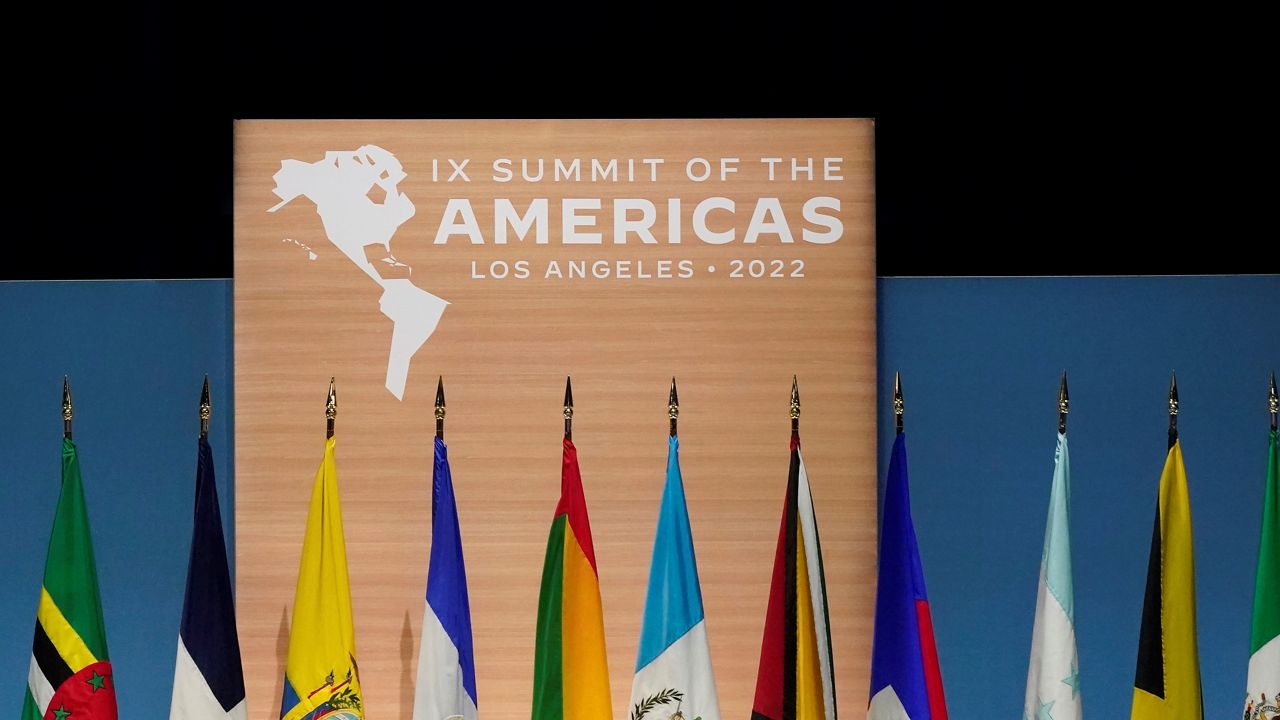LOS ANGELES (CNS) — Mayor Eric Garcetti and the city's Civil + Human Rights and Equity Department hosted a panel discussion Wednesday with U.S. State Department officials and mayors from cities throughout the Americas to discuss violence prevention strategies as Los Angeles hosts this year's Summit of the Americas.
"Leaders from across the Americas have come together this week around solutions to our shared challenges. including preventing violence in our cities — a top priority for every mayor," Garcetti said. "This gathering provided a meaningful opportunity for us to share strategies for building the trust that is essential to public safety, creating resilient networks within and across communities, and ensuring our residents have access to the resources they need to thrive."
The panel discussion included mayors from Villa Nueva, Guatemala; Puerto Barrios, Guatemala; Moravia, Costa Rica; Bogotá, Colombia; Port of Spain, Trinidad; Denver, Colorado and Chattanooga, Tennessee. It was moderated by the LA Civil Rights Director of Policy and Enforcement Joumana Silyan-Saba.
"Today was an important opportunity to meet with mayors across the Americas to discuss strategies to reduce and prevent violence," said Uzra Zeya, the State Department's undersecretary for civilian security, democracy and human rights. "We all understand the need to prioritize a public health approach to dealing with all forms of violence. The Biden-Harris administration has made this a priority through its commitment to support community violence prevention programs here in the U.S. and in Latin America and the Caribbean."
Along with the panel discussion with mayors, the four-hour event included a series of roundtables with more than two dozen experts and elected leaders from 11 countries.
With violence rising in the United States — including mass shootings and hate crimes — leaders spoke about violence in their countries and strategies for prevention and reduction, according to LA Civil Rights, which said violence is often interconnected between societies.
"The prevention of violence is one of the cornerstones of the Bogotá that we are building," Bogotá Mayor Claudia López said.
"We're working on this via three lines of action. First, we are guaranteeing full access to justice to avoid impunity and to ensure guarantees for victims. Second, we are strengthening actions taken by authorities to maintain greater harmony in the city. Lastly, we are providing opportunities. Employment, care and a decent life are the best tools to prevent violence. The right to a safe space means the right to a better future," López said.
The meeting's participants committed to working together to prevent violence, including through mental health support and the promotion of equitable societies. The co-hosts — which also include the Strong Cities Network, the Violence, Inequality and Power Lab at the University of San Diego, and the McCain Institute at Arizona State University — will prepare a white paper that includes lessons learned and best practices shared during the event.



